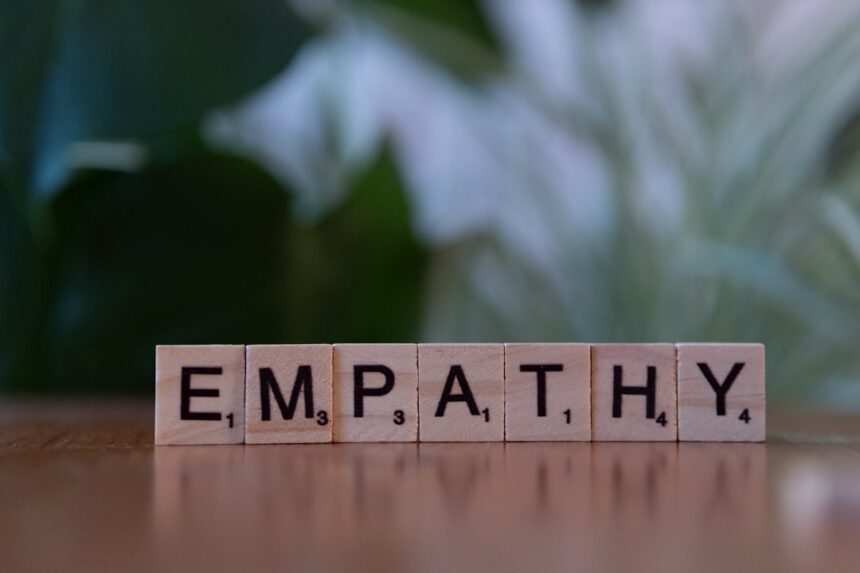Emotional intelligence (EI) is a multifaceted concept that encompasses the ability to recognize, understand, and manage your own emotions while also being attuned to the emotions of others. It is not merely about being aware of feelings; it involves a deeper comprehension of how emotions influence thoughts and behaviors. As you navigate through life, developing your emotional intelligence can significantly enhance your personal and professional relationships.
By honing this skill, you can improve your decision-making processes, foster better communication, and create a more harmonious environment around you. At its core, emotional intelligence is divided into several key components: self-awareness, self-regulation, motivation, empathy, and social skills. Each of these elements plays a crucial role in how you interact with the world.
For instance, self-awareness allows you to identify your emotional triggers and understand how they affect your actions. Self-regulation helps you manage those emotions constructively rather than reacting impulsively. By grasping these concepts, you can begin to appreciate the profound impact emotional intelligence has on your overall well-being and interpersonal dynamics.
Key Takeaways
- Emotional intelligence involves understanding and managing emotions, developing empathy, and improving communication skills.
- Recognizing and managing emotions is essential for effective emotional intelligence.
- Developing empathy and compassion is crucial for building strong relationships and understanding others.
- Improving communication skills is key to expressing emotions and understanding others in a healthy way.
- Cultivating self-awareness and practicing mindfulness are important for self-regulation and building resilience.
Recognizing and Managing Emotions
Recognizing your emotions is the first step toward effective emotional management. You may find that certain situations elicit strong feelings, whether they are joy, anger, sadness, or anxiety. By paying attention to these emotional responses, you can start to identify patterns in your behavior and reactions.
Keeping a journal can be an effective tool for this purpose; by writing down your feelings and the circumstances surrounding them, you can gain insights into what triggers specific emotions and how you typically respond. Once you have a clearer understanding of your emotional landscape, the next step is to manage those emotions effectively. This involves developing strategies to cope with negative feelings and enhance positive ones.
Techniques such as deep breathing, visualization, or even physical exercise can help you regulate your emotions in challenging situations. By practicing these methods regularly, you can cultivate a sense of emotional balance that allows you to respond thoughtfully rather than react impulsively.
Developing Empathy and Compassion

Empathy is the ability to understand and share the feelings of others, while compassion goes a step further by motivating you to take action to alleviate their suffering. Developing these qualities is essential for building strong relationships and fostering a supportive community around you. To enhance your empathy, start by actively listening to others without judgment.
This means putting aside your own thoughts and opinions to fully engage with what someone else is expressing. By doing so, you create a safe space for open communication and connection. Compassion can be cultivated through small acts of kindness and understanding.
When you encounter someone in distress, consider how you would feel in their situation. This perspective shift can inspire you to offer support or simply lend a listening ear. Additionally, practicing self-compassion is equally important; by treating yourself with kindness during difficult times, you set an example for how to treat others.
As you nurture empathy and compassion within yourself, you’ll find that your relationships deepen and your interactions become more meaningful.
Improving Communication Skills
| Metrics | Results |
|---|---|
| Number of communication workshops attended | 10 |
| Feedback score from peers | 4.5 out of 5 |
| Number of successful presentations delivered | 15 |
| Improvement in active listening skills | 20% |
Effective communication is a cornerstone of emotional intelligence. It involves not only expressing your thoughts and feelings clearly but also being able to interpret the emotions conveyed by others. To improve your communication skills, focus on both verbal and non-verbal cues.
Pay attention to body language, tone of voice, and facial expressions when engaging with others. These elements often convey more than words alone and can provide valuable context for understanding someone’s emotional state.
This means fully concentrating on what the other person is saying rather than formulating your response while they speak. By demonstrating genuine interest in their words, you foster trust and openness in the conversation. Additionally, practice articulating your own feelings and thoughts in a way that is respectful and constructive.
This balance of listening and expressing will enhance your ability to connect with others on a deeper level.
Cultivating Self-Awareness
Self-awareness is the foundation of emotional intelligence; it allows you to recognize your emotions, strengths, weaknesses, values, and motivations. To cultivate self-awareness, take time for introspection. Reflect on your experiences and consider how they have shaped your emotional responses.
You might find it helpful to engage in mindfulness practices or meditation, which can help quiet the mind and bring clarity to your thoughts and feelings. Another effective way to enhance self-awareness is through feedback from others. Seek constructive criticism from trusted friends or colleagues who can provide insights into how your behavior affects those around you.
This external perspective can illuminate blind spots in your self-perception and guide you toward personal growth. As you become more self-aware, you’ll find it easier to navigate challenges and make decisions that align with your true self.
Practicing Mindfulness and Self-Regulation

Mindfulness is the practice of being present in the moment without judgment. It allows you to observe your thoughts and feelings as they arise without becoming overwhelmed by them. By incorporating mindfulness into your daily routine, you can develop greater self-regulation over time.
Techniques such as meditation, deep breathing exercises, or even mindful walking can help ground you in the present moment and reduce stress. Self-regulation involves managing your emotions effectively in various situations. When faced with challenges or conflicts, mindfulness can serve as a powerful tool for maintaining composure.
Instead of reacting impulsively out of frustration or anger, mindfulness encourages you to pause and assess the situation before responding thoughtfully. This practice not only enhances your emotional intelligence but also contributes to healthier relationships by promoting calm and constructive interactions.
Building Resilience and Coping Strategies
Resilience is the ability to bounce back from adversity and maintain a positive outlook despite challenges. Building resilience involves developing coping strategies that enable you to navigate life’s ups and downs with grace. One effective approach is to reframe negative experiences as opportunities for growth rather than insurmountable obstacles.
By shifting your perspective, you empower yourself to learn from difficulties rather than be defeated by them. Additionally, cultivating a strong support network can significantly enhance your resilience. Surround yourself with individuals who uplift and encourage you during tough times.
Sharing your experiences with trusted friends or family members can provide comfort and perspective when facing challenges. Remember that resilience is not about avoiding stress but rather about developing the tools to cope with it effectively.
Enhancing Social Skills and Relationships
Strong social skills are essential for building meaningful relationships and fostering connections with others. To enhance these skills, focus on developing rapport through active engagement in conversations. Show genuine interest in others by asking open-ended questions that encourage them to share their thoughts and feelings.
This not only deepens your understanding of their perspectives but also creates a sense of belonging. Moreover, practice conflict resolution skills as part of enhancing your social abilities. Disagreements are inevitable in any relationship; however, how you handle them can make all the difference.
Approach conflicts with an open mind and a willingness to understand the other person’s viewpoint. By seeking common ground and working collaboratively toward solutions, you strengthen relationships rather than allowing misunderstandings to create distance.
Embracing Change and Adaptability
Change is an inevitable part of life, yet many people struggle with it due to fear or uncertainty. Embracing change requires a mindset shift that allows you to view new experiences as opportunities for growth rather than threats to stability. To cultivate adaptability, practice stepping outside of your comfort zone regularly; this could involve trying new activities or engaging with diverse groups of people.
Additionally, maintaining a positive attitude toward change can significantly impact how you navigate transitions in life. Instead of resisting change or dwelling on what was lost, focus on the potential benefits that new experiences may bring. By fostering an adaptable mindset, you’ll find it easier to cope with life’s uncertainties while remaining open to new possibilities.
Fostering Emotional Intelligence in the Workplace
Emotional intelligence plays a vital role in creating a positive workplace culture where collaboration thrives. To foster EI within your organization, lead by example; demonstrate self-awareness, empathy, and effective communication in all interactions with colleagues. Encourage open dialogue about emotions in the workplace by creating safe spaces for employees to express their feelings without fear of judgment.
Training programs focused on emotional intelligence can also be beneficial for teams looking to enhance their collective EI skills. Workshops that emphasize active listening, conflict resolution, and empathy-building exercises can help employees develop stronger interpersonal relationships while improving overall team dynamics. By prioritizing emotional intelligence in the workplace, organizations can cultivate an environment where individuals feel valued and supported.
Seeking Professional Support and Resources
While developing emotional intelligence is a personal journey, seeking professional support can provide valuable guidance along the way. Therapists or coaches specializing in emotional intelligence can offer insights tailored specifically to your needs while helping you navigate challenges more effectively. They can provide tools and strategies that align with your unique circumstances.
Additionally, numerous resources are available—books, online courses, workshops—that focus on enhancing emotional intelligence skills. Engaging with these materials can deepen your understanding of EI concepts while providing practical exercises for implementation in daily life. Remember that seeking support is not a sign of weakness but rather an acknowledgment of your commitment to personal growth and well-being.
In conclusion, emotional intelligence is an essential skill set that influences every aspect of our lives—from personal relationships to professional success. By understanding its components and actively working on recognizing emotions, developing empathy, improving communication skills, cultivating self-awareness, practicing mindfulness, building resilience, enhancing social skills, embracing change, fostering EI in the workplace, and seeking professional support when needed, you can significantly enrich both your life and the lives of those around you.
For those seeking to deepen their understanding of emotional intelligence, an insightful article can be found on Unplugged Psych. This resource delves into the nuances of emotional intelligence, offering practical advice and strategies for personal growth and improved interpersonal relationships. To explore this topic further, you can read the related article by visiting This site provides a wealth of information for anyone interested in enhancing their emotional awareness and applying these skills in everyday life. 🧠 😶🌫️ The Detachment Trap: Why “Spiritual Bypassing” Will Never Lead to Enlightenment Emotional intelligence refers to the ability to recognize, understand, and manage one’s own emotions, as well as the ability to recognize, understand, and influence the emotions of others. Emotional intelligence is important because it can help individuals navigate social complexities, make better decisions, and achieve greater success in both personal and professional relationships. One can develop emotional intelligence through self-awareness, self-regulation, motivation, empathy, and social skills. This can be achieved through self-reflection, seeking feedback from others, and practicing mindfulness and empathy. Having high emotional intelligence can lead to improved communication, better conflict resolution, stronger relationships, and increased resilience in the face of challenges. Yes, emotional intelligence can be learned and developed over time through self-awareness, practice, and a willingness to improve one’s emotional skills. Emotional intelligence can impact personal and professional success by enhancing leadership abilities, improving teamwork, and fostering better decision-making and problem-solving skills. It can also lead to greater job satisfaction and overall well-being.FAQs
What is emotional intelligence?
Why is emotional intelligence important?
How can one develop emotional intelligence?
What are the benefits of having high emotional intelligence?
Can emotional intelligence be learned?
How does emotional intelligence impact personal and professional success?




